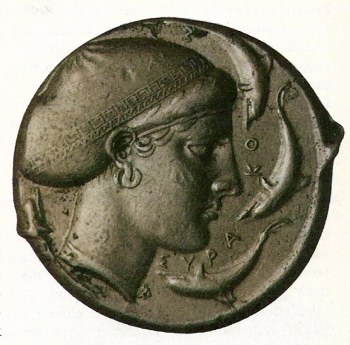We Live in a Money and Profit Economy
 We do not live in a simple world. How far from simple the economic world of our time has become, we can best comprehend from a study of the day-by-day life of a pioneer, such as Knut Hamsun has given us in a remarkable book, The Growth of the Soil. Here we have a story of the simple, self-sufficient, economic life of a man who stakes out a claim in the virgin forest and proceeds, by the sweat of his brow, to wrest a living from Nature. We do not live in a simple world. How far from simple the economic world of our time has become, we can best comprehend from a study of the day-by-day life of a pioneer, such as Knut Hamsun has given us in a remarkable book, The Growth of the Soil. Here we have a story of the simple, self-sufficient, economic life of a man who stakes out a claim in the virgin forest and proceeds, by the sweat of his brow, to wrest a living from Nature.
Such a man never need be idle for lack of work. He clears the land by his own toil; he grows potatoes and eats them; he builds a shed and uses it for his cow; he raises a heifer and barters it for a cart. Whatever he manages to produce beyond his daily needs, he himself hauls to the local market. He is his own employer, his own carrier, his own salesman. He need not doubt -- in fact, it does not occur to him to doubt -- that the harder and the more intelligently he works, the more he has to consume. And it is plain that when, instead of consuming the heifer, he exchanges it for a cart, he is just that much ahead: he actually has the cart.
There is no mystery about the fact that by thus saving, each season, a part of what he produces, he constantly increases the satisfactions of life. All his savings are real: there they are -- tools, lumber, barns, cattle -- all on his own land, always under his own eye; and there is no way in which they can prevent him from continuing to produce and to save. To him the economics of industry is an open book. But the day of the pioneer is over.
First among the complications of our day is a medium of exchange. Its advantages to society, we have discussed in Money. We have shown that, without a medium of exchange, man could not have created nations, developed the specialization and coöperation which characterize modern industry, accumulated the present vast store of wealth, and realized a standard of living for the rank and file of laborers far beyond the reach or imagination of primitive man, or even of the cattle kings of old. But money is more than a convenience; it can hinder as well as facilitate the production and distribution of goods. Indeed, the change from barter to money, far from being a mere matter of convenience, is fraught with such farreaching consequences that some of the traditional economic principles, based as they usually have been upon barter-trading, do not apply to the currency and credittrading world of today.
In particular, we explained at length how the introduction of money led to the periodic upsetting of the balance of supply and demand that characterized the dealings of the pioneer. Whatever the pioneer took to a barter market was his demand and another man's supply; whatever he carted back to his clearing in the woods was his supply and another man's demand. Each transaction was complete: the barter balance was perfect. The primitive community produced what it consumed and consumed what it produced; but the intrusion of money at once made possible the overthrow of that balance.
For money is suspended purchasing power. It is left hanging over the market, to be used, nobody knows when, or where, or for what. To be sure, the introduction of a medium of exchange into the exceedingly simple barter economy did not at once confront society with the problems that, from the outset, were inherent in the use of money. It was not until the present era of highly complex industrial organizations and bank credit that it became possible for money, as suspended purchasing power, to play such an effective part in the ups and downs of business.
We live, then, in a money economy. Until we know what this involves, we cannot hope to understand either the achievements or the shortcomings of the industrial world of today. Still more significant is the fact that we live in a profit economy: our entire economic order is based on the production of goods for sale at a money profit. It is easy to conceive of a money economy without profits; it is easy to conceive of a profit economy without money. Either would give rise to complexities with which the pioneer had no concern.
They would, no doubt, be difficult to understand and difficult to deal with; but they would be simple compared with the complexities which arise out of the combination of a money economy and a profit economy -- such sources of trouble, for example, as the possibility of money profits without real profits, and real profits without money profits, and the impossibility of telling, on any given day, whether there are going to be any profits at all. Complicated as the world of exchange becomes upon the introduction of a circulating medium, the addition of gigantic corporations, with money profits as their dominant aim, brings far greater complications. It thrusts upon us the great economic problem of today.
 More Readings More Readings |